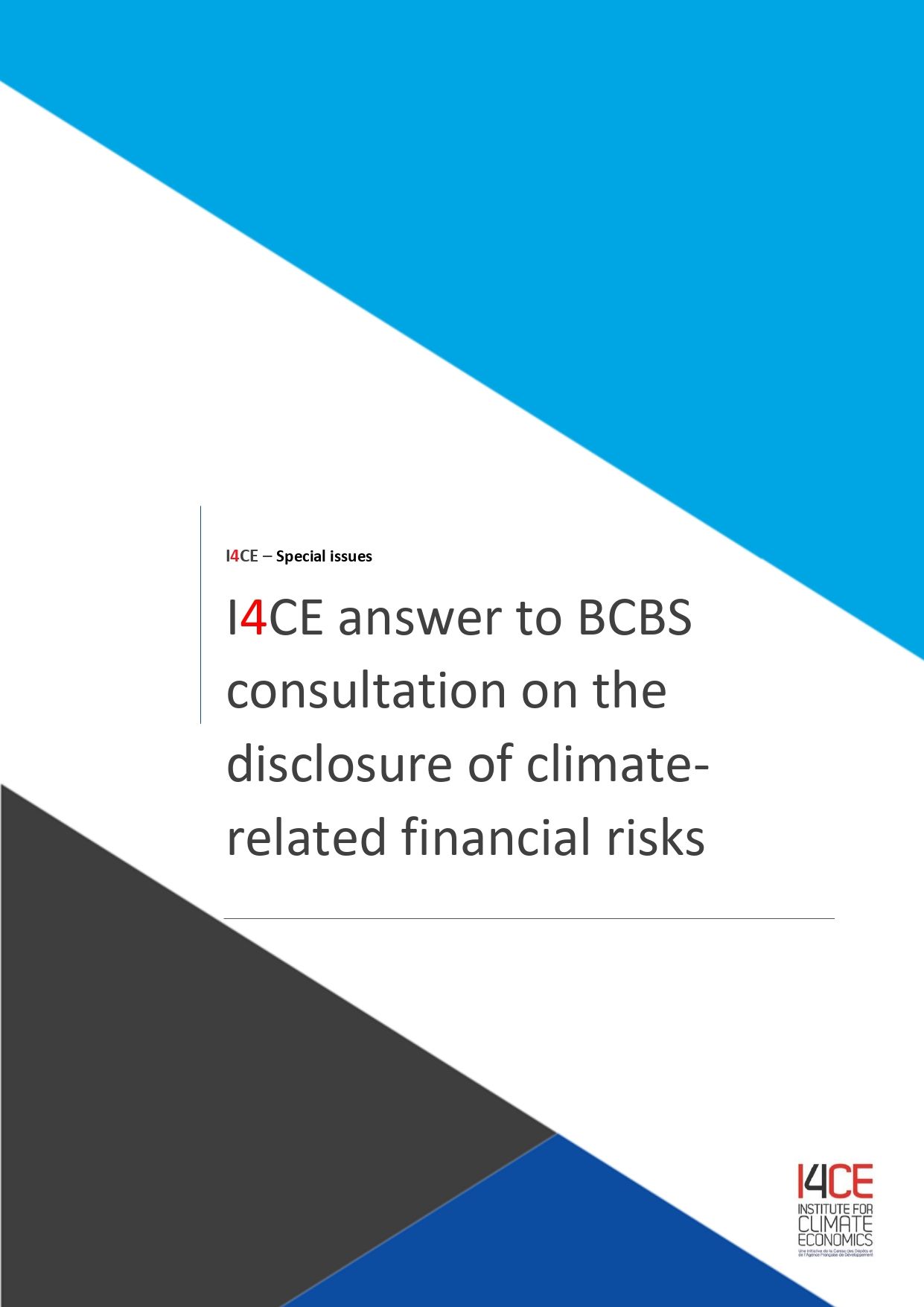Recommandations d’I4CE au Comité de Bâle sur la divulgation des risques liés au climat
Après une première étape en 2022, le Comité de Bâle sur le contrôle bancaire s’oriente enfin vers une réglementation des risques liés au climat. Fondé en 1974, ce forum réunit les superviseurs financiers des pays du G20 et établit des normes communes pour la stabilité financière. Il y a deux ans, le comité a publié un document consultatif sur les principes de gestion et de surveillance des risques climatiques. Il prend maintenant des mesures supplémentaires en s’orientant vers la réglementation.
Ce document de consultation publique, publié en novembre 2023, vise à intégrer les risques financiers liés au climat dans le cadre de la divulgation d’informations (pilier 3). Dans le cadre de cette consultation, les experts finance d’I4CE ont adressé leurs recommandations au Comité en mars 2024.
Rapport uniquement disponible en anglais
The Committee is analysing how a Pillar 3 disclosure framework for climate-related financial risks would further its mandate to strengthen the regulation, supervision and practices of banks worldwide with the purpose of enhancing financial stability, and the potential design of such a framework. This work forms part of the Committee’s holistic approach to address climate-related financial risks to the global banking system, which started to emerge in 2022 with a first consultation paper that I4CE had commented on. It also published a consultation paper on a Pillar 2 supervision standard in 2023 and a FAQ on existing Pillar 1 standards in 2022.
I4CE – Institute for Climate Economics strongly supports the Basel Committee on Banking Supervision in its initiative to integrate climate-related risks within Pillar 3 disclosure requirements. This evolution is essential to ensure financial stability and proper functioning of the market in a context of intensification of transition and physical climate risks. Now is time to move from voluntary commitments to regulation to secure global resilience.
I4CE welcomes the work that has been done to improve climate-related management and supervisory practices. I4CE support the current approach of the Basel Committee to gather both quantitative and qualitative information, with a forward-looking vision. On the basis of their understanding of climate-related risks, banks should take action. Their practices should evolve to support the transition of their clients and reduce their risk exposure. This is why I4CE recommends to the Basel Committee to strengthen its qualitative elements on transition plans.


